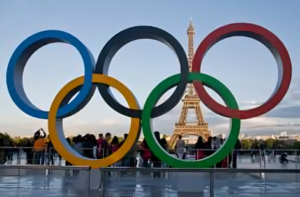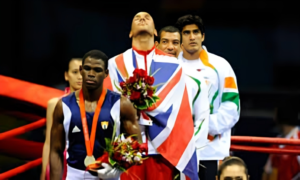Celebrating the Five Most Successful Countries in Olympic History
Introduction
The Olympic Games stand as the pinnacle of athletic achievement, drawing the world’s finest competitors every two and four years. From ancient contests in Olympia to modern spectacles hosted across the globe, nations have vied not only for medals but for a place in history. This article explores the five countries that have consistently dominated the medal table, examining the factors behind their success, sharing real‑life stories of triumph, and reflecting on how their Olympic legacies inspire future generations.

1. United States of America
Since the inaugural modern Olympics in 1896, the United States has regularly topped the medal count, leveraging a vast talent pool, state‑of‑the‑art training facilities, and a culture that celebrates sport at all levels.
- Medal Tally Highlights:
- Over 2,900 total medals (over 1,100 golds) across Summer and Winter Games.
- Record gold‑medal performances in athletics, swimming, and gymnastics.
- Key Programs & Institutions:
- The NCAA system, nurturing athletes from high school through college.
- Olympic Training Centers in Colorado Springs, Lake Placid, and the U.S. Olympic Campus in Lake Nona, Florida.
- Real‑Life Example:
Michael Phelps, the most decorated Olympian, turned early dyslexia struggles into world‑record‑breaking triumphs, winning 23 gold medals between 2004 and 2016. His Sharks Swim Club and mental‑health advocacy continue to motivate young swimmers nationwide.
2. Soviet Union / Russia
From 1952 until the USSR’s dissolution in 1991, Soviet athletes challenged the U.S. for dominance. Today, the Russian Olympic Committee continues that legacy, particularly in artistic gymnastics, figure skating, and wrestling.
- Medal Tally Highlights:
- USSR: 1,204 Summer medals (395 golds), 194 Winter medals (78 golds).
- Russia (post‑1994): over 600 total medals (over 190 golds).
- State‑Sponsored Excellence:
- Centralized sports schools identifying talent from childhood.
- Rigorous year‑round training and scientific support across physiology, nutrition, and psychology.
- Story of Perseverance:
Figure skater Irina Slutskaya overcame a serious knee injury before the 2002 Salt Lake City Games to win gold, embodying the resilience bred by Russia’s sports system.
3. Germany
Unified Germany, along with its predecessor East Germany (GDR), has excelled, especially in track cycling, rowing, and luge. German athletes’ precision and discipline reflect the nation’s engineering mindset.
- Medal Tally Highlights:
- Combined (FRG + GDR): approximately 1,600 Olympic medals, with over 550 golds.
- Consistent podium finishes in rowing and canoeing.
- Technical Mastery:
- High‑tech equipment: lightweight boats, custom‑designed bicycles.
- Sports schools (Kinder- und Jugendsportschulen) focus on early identification.
- Anecdote:
Rower Kathrin Boron claimed four Olympic golds across five Games, balancing motherhood with elite training—an inspiring testament to Germany’s support for athlete‑parents.

4. Great Britain
From modest beginnings, Team GB surged in the 21st century to become a top‑five nation, driven by targeted funding through UK Sport and London 2012’s legacy.
- Medal Tally Highlights:
- Over 800 total medals, with a surge to 65 medals (29 gold) at London 2012.
- Strengths: cycling (Sir Chris Hoy), track and field, rowing.
- Funding & Facilities:
- National Lottery funding supports athlete development.
- High Performance Centres across the UK.
- Inspirational Journey:
Sir Mo Farah escaped political unrest in Somalia as a child and went on to win four Olympic golds in distance running, capturing hearts across Britain and beyond.
5. China
China’s meteoric rise since the 1984 Los Angeles Games is a masterclass in strategic investment, talent scouting, and rigorous training, especially in diving, table tennis, and gymnastics.
- Medal Tally Highlights:
- Over 600 gold medals total (primarily since 2000).
- Dominant in women’s gymnastics and men’s diving.
- Systematic Approach:
- State‑run sports schools enrolling children as young as six.
- Collaboration between provincial and national coaches for seamless athlete progression.
- Real‑Life Success:
Diver Guo Jingjing, scouted at age nine, earned four Olympic golds and became a national icon—her discipline and dedication reflecting China’s sports ethos.
Conclusion
The tapestry of Olympic history is woven with stories of individual grit and national ambition. The United States, Soviet Union/Russia, Germany, Great Britain, and China each demonstrate that success stems from more than talent alone—it requires vision, infrastructure, and unwavering support. As emerging nations invest in their own athletes, the Olympic narrative continues to evolve, inspiring millions to dream of gold.